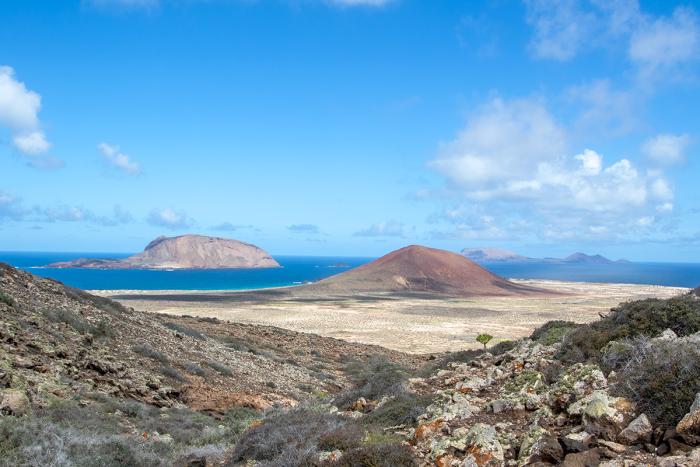
Island facts
The Island of La Graciosa has, for 50 years and until today, an energy and water supply completely dependent on the island of Lanzarote, located 1.5 km away. All the energy and drinking water supplied to La Graciosa is channelled through underwater cables and pipes and comes from processes that, approximately 90%, are derived from the burning of fossil fuels. Breaks in water pipes and electrical connections constantly break down, preventing supply for hours, days or weeks, generating many problems for its resident and visiting population and a completely unsustainable scenario.
In La Graciosa, some homes already have photovoltaic panels for self-consumption, but the rest of the buildings and infrastructure on the island depend entirely on the supply from Lanzarote. La Graciosa does not have, within the framework of the water cycle, any wastewater treatment plant or sanitation network, so the need to generate these elements on the island itself fed by renewable sources is an essential and urgent priority.
The initiative of this small island within the framework of the 30 islands of the European Union is to achieve energy, water, waste management and mobility independence, with 100% renewable energy.
Within this overall objective, three specific objectives are considered (environmental, social, and economic), as described in previous documents submitted to the European Commission in this selection process promoted by CE4EUIslands.
Contact
Organisations involved in the energy transition are EL SOL DE LA GRACIOSA COMUNIDAD ENERGÉTICA - https://elsoldelagraciosa.org/ GOBIERNO AUTÓNOMO DE CANARIAS, VICECONSEJERÍA DE TRANSICIÓN ECOLÓGICA Y LUCHA CONTRA EL CAMBIO CLIMÁTICO - www.gobiernodecanarias.org, CABILDO INSULAR DE LANZAROTE - https://www.cabildodelanzarote.com/, AYUNTAMIENTO DE TEGUISE - https://teguise.es/, ASOCIACIÓN PARA EL DESARROLLO DE ACCIONES CLIMÁTICAS INTEGRALES (ADACIS) - https://adacis.org/
As part of the 30 for 2030 call the following activities are planned:
The "Decarbonization of transport sector" activity involves studying the mobility needs on and to/from the island, establishing a baseline, and exploring options to decarbonise the transport sector.
The "Waste management and valorisation" activity includes analysing waste production, creating a baseline of waste production and treatment, and exploring options to reduce and treat waste.
The "Water desalination and wastewater treatment" activity involves analysing the overall water cycle, developing a model of potable water on the island with a baseline, and exploring options to decarbonise the potable water cycle, including the on-site supply of water.
The "PVs for homes, public areas, and businesses" activity is based on an existing analysis already developed for technical aspects. It involves analysing public and private ownerships, as well as legal, regulatory and PPP models.
The "Solar resource assessment, storage needs, and desalination plant" activity includes analysing the solar potential and suitability of identified sites for PV installation, assessing storage needs under different consumption scenarios, and exploring the inclusion of a desalination plant powered by solar energy.
